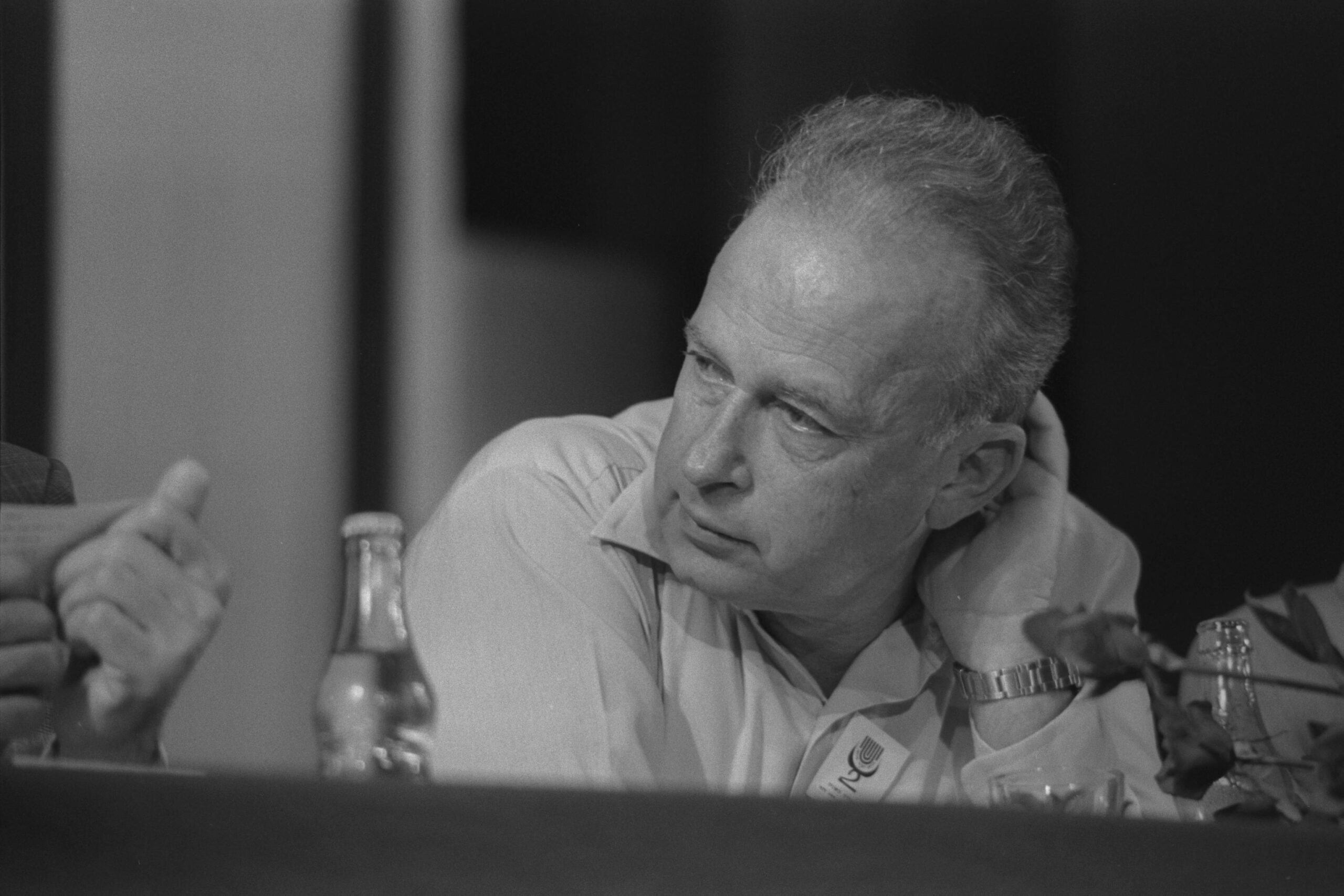Rabin First Becomes Prime Minister

June 3, 1974
Having defeated Shimon Peres in an election for Labor Party leader, Yitzhak Rabin formally succeeds Golda Meir as prime minister when he presents his coalition government to the Knesset for approval. He recounts the major accomplishments of the Meir government and says his Cabinet will prioritize the end of poverty and reductions in social and economic gaps, but much of his address focuses on foreign policy.
Peace is preferable to military victories, Rabin says, explaining that the greatest military victory in Jewish history in the Six-Day War did not bring peace. He expresses doubts that peace can be achieved through a sudden transition from war and instead advocates a series of partial agreements to test the intentions of each Arab state and build toward peace. The next phase, he says, will be to monitor whether Syria and Egypt fulfill their obligations under the separation-of-forces agreements each signed with Israel in the aftermath of the Yom Kippur War.
He says Israel must seek peace with Egypt first because it is the foremost country in the Arab world, but Rabin also discusses ways in which Israel can negotiate with Syria and Jordan.
He predicts increased substantive aid from the United States because of the agreements with Egypt and Syria, and he says settlements on the northern border must be strengthened.
Rabin says he hopes that new governments in European countries will improve their relations with Israel, and he says Israel has a firm foundation for friendships with African nations. He also pledges to work on stronger ties with the Diaspora and to improve absorption procedures for immigrants.